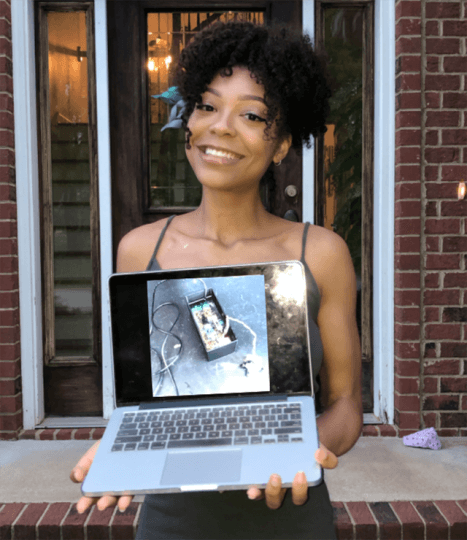Engineering Design Projects (ES 100), the capstone course at the Harvard John A. Paulson School of Engineering and Applied Sciences, challenges seniors to engineer a creative solution to a real-world problem.
Water Quality Sensors for Estuarine Measurements
Jazmin Simpkins, S.B. ’20, environmental science and engineering
Commercially available water quality sensors that can be used in estuarine environments are expensive, which limits the number of researchers who are able to use these high-priced sensors to generate scientifically relevant data. Simpkins, drawing on her experiences working on a sensor that could be implemented on a sea floor lander in a Harvard research lab, set out to develop an inexpensive turbidity sensor that could be deployed in estuaries up to 1,000 meters in depth. Her project involved designing, building, calibrating, water proofing, and pressure testing the turbidity sensor, as well as designing an inexpensive temperature and conductivity system that could be implemented in the future. The biggest challenge Simpkins faced as she worked on this project was learning skills on the fly, such as laser printing, soldering, and potting with epoxy. In addition, her calibration experiments took more time than she expected due to trouble shooting between rounds.
“This experience reinforced the importance and challenges that come with perseverance. As one of only two black women in the Class of 2020 pursuing an S.B., I definitely feel there’s a lack of representation for us in the STEM fields,” she said. “Because of this, I felt the urge to continue to push forward in this project even when it got difficult and stressful—and it did get difficult and stressful—because I understood the importance of a black woman being present in this space. I also wanted to make it possible for other black women to continue to have mentors and support within this field, and people who can relate to the specific issues associated with lack of representation that we face as black women in STEM. I believe that having that kind of support and backing as an underrepresented group is extremely important.”
Press Contact
Adam Zewe | 617-496-5878 | azewe@seas.harvard.edu
